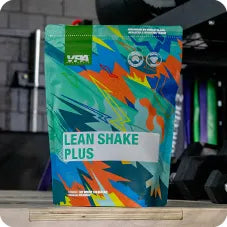Your Cart is Empty
Bone broth or collagen supplements for injury prevention and recovery
May 25, 2020 5 min read

Could consuming bone broth increase collagen synthesis, prevent injuries or speed up injury recovery? There is compelling emerging evidence that collagen supplementation helps to increase collagen synthesis and this could help improve outcomes for athletes. Theoretically, bone broth could be useful as a food source of collagen precursors. If you prefer a food-first approach to your nutrition, supplementing collagen with bone broth sounds like a great idea. This blog will discuss whether bone broth and collagen supplements are useful for injury prevention and recovery, and which one is best to use in practice.
Collagen supplements
It’s still early days when it comes to collagen supplementation, but the research looks promising. The evidence collected so far indicates that collagen could help with musculoskeletal injuries. This includes any injury related to tendons, ligaments, cartilage and bones. If you’ve ever had this kind of injury, you already know how difficult they are to come back from! Since musculoskeletal injuries make up ~70% of total injuries, theoretically, collagen supplementation could help with the majority of injuries.
Appropriately dosed collagen supplementation significantly increases collagen synthesis. This, in turn, could speed up recovery from an injury or help reduce the risk of injuries occurring in the first place.
There isn’t a large volume of research on collagen supplements and injury at the moment. However, collagen has been utilised in case studies on patellar tendinopathy and ACL tears.
Let’s use the patellar tendinopathy case study as an example: This player had a hole in their patellar tendon. These holes generally remain post-rehab, even if the treatment has been successful. But through following the collagen supplementation protocol below, combined with the rehab, the player no longer had a hole in their tendon. You can see this in the MRI image below.
Image shows: Axial proton density weighted SPAIR MRI images from (a) before, (b) 12 months, and (c) 18 months into the intervention showing the hole within the proximal patellar tendon before the intervention and the progressive loss of signal at the inferior pole of the patella following the intervention.
Collagen supplementation protocol
At this stage, it doesn’t look like there is any noticeable difference between different forms of collagen. This means that it doesn’t appear to matter whether you use hydrolysed collagen, gelatin or collagen peptides, as long as the dosage is sufficient. What really matters is the protocol. The way it appears to work best is as listed below –
Dosage: Take 15-25g gelatin, hydrolysed collagen or collagen peptides.
Vitamin C: Combine collagen supplements with more than 50mg of vitamin C.
Timing: Take collagen around 40-60 minutes before training/rehab.
All of these factors are important. When dosages lower than 15g of collagen have been used, there hasn’t been a significant benefit. We don’t know the upper limit for maximising the usefulness of collagen but appears to be not far above 15g.
Vitamin C and collagen supplementation
Vitamin C plays an important role in one of the steps in collagen synthesis. Since all of the research on this topic has been undertaken in a fasted state and vitamin C is a water-soluble vitamin, they have required vitamin C to be supplemented. You may not need to supplement it if your natural diet covers these needs. It is probably a good idea to consume some vitamin C near the timing of supplementation with collagen though.
To put this in context, the RDI for vitamin C in Australia is 45mg and all the studies have utilised 50mg or higher. Potentially the amount needed could be a lot lower, but that has not yet been studied.
The timing of the collagen supplementation is important too. At this stage, it looks like it is best to consume the supplement 40-60 minutes prior to the training stimulus. This is when the amino acid concentration peaks in the plasma. Theoretically, this will maximise collagen synthesis, although I wouldn’t be surprised if post-workout supplementation had similar outcomes. We just do not have the research on that yet.
Since collagen supplementation cannot specifically target the injured area naturally, the best we can do is attempt to time it so that the relevant amino acid levels are at their highest during the exercise stimulus.
It is worth restating that there is not a lot of research yet. What we have so far looks promising, but I would expect the body of evidence to grow and change over time, which could change these recommendations.
Can I use bone broth instead of a collagen supplement?
Since collagen supplementation appears to be effective, it leads to the question of what food sources of collagen could be useful.
Hydrolysed collagen is gelatin that has been processed into a powder. This makes it easier to consume and digest for a lot of people. Gelatin is made from boiling down animal bones, which forms a gel when mixed with liquid. When bone broth is made, a jelly-like substance often forms at the top. This is gelatin.
Because there is no difference between hydrolysed collagen and gelatin when it comes to outcomes, the argument could be made that bone broth could be used for the same purpose as it contains gelatin.
What is bone broth?
Bone broth, known as “stock” to many people, is made by boiling down the bones and connective tissues of animals. You can infuse additional flavour into the broth with spices and vegetables. Bone broth is used to make soups, stews, sauces and gravy.
Bone broth has been used at the top level by quite a few well-known athletes for its potential to aid injury recovery. And theoretically, if you meet the supplementation protocol above, it should work just as effectively.
The amount of collagen in bone broth is not consistent
The level of collagen in bone broth is inconsistent and often too low to be beneficial. A study by Rebekah Alcock conducted at the AIS in 2018 that bone broth provides unreliable concentrations of collagen precursors. The study found that the concentrations of collagen in bone are too low in comparison to the intake needed.
There are also other food sources of collagen derivatives. These typically involve consuming other parts of the animal such as cartilage, bone marrow, tendon and gristle. In some cultures, this is a more common occurrence e.g. something like chicken feet is not uncommon in Japanese culture.
This still leaves the issue of it not being measurable, however.
Conclusion
I typically look for ways to meet nutritional needs through food when realistic and effective. This is achievable in a large range of situations for most people. However, based on current evidence, collagen supplementation appears to be a far more reliable method for optimising outcomes for injured athletes than using natural food sources.
Also in Supplements

The Ultimate 12-Week HYROX Training Plan (Beginner-Friendly + Expert-Approved)
December 04, 2025 7 min read
Read More
What Is HYROX? The Complete Beginner’s Guide to the World’s Fastest-Growing Fitness Race
December 04, 2025 8 min read
Read More
The Ultimate HYROX Fuel Plan: When and How to Use Energy Gels for Maximum Output
October 15, 2025 6 min read
Read More Recent Articles
- The Ultimate 12-Week HYROX Training Plan (Beginner-Friendly + Expert-Approved)
- What Is HYROX? The Complete Beginner’s Guide to the World’s Fastest-Growing Fitness Race
- The Ultimate HYROX Fuel Plan: When and How to Use Energy Gels for Maximum Output
- Collagen for Tendon Repair: Can Supplements Support Recovery?
- What Is Creatine Monohydrate? Benefits, Safety & How to Use It
- How Is Creatine Made? (Natural, Synthetic & Quality Standards Explained)
- What’s the Best Creatine in Australia? Here’s Why Monohydrate Still Reigns Supreme
- What Is Whey Protein? A Beginner’s Guide
- 7 Best Protein Powders in Australia (Taste-Tested August 2025)
- Why Does Beta‑Alanine Cause Tingling? (What’s Behind the Beta‑Alanine Tingle)
${{amount}}













